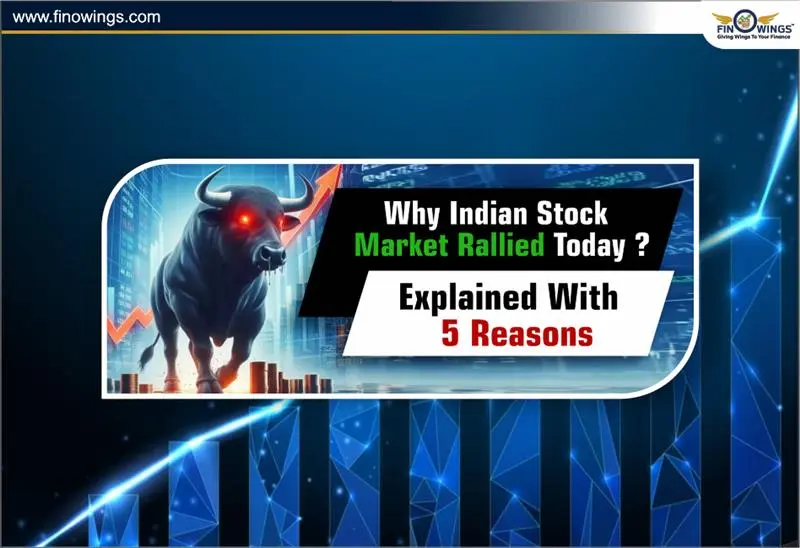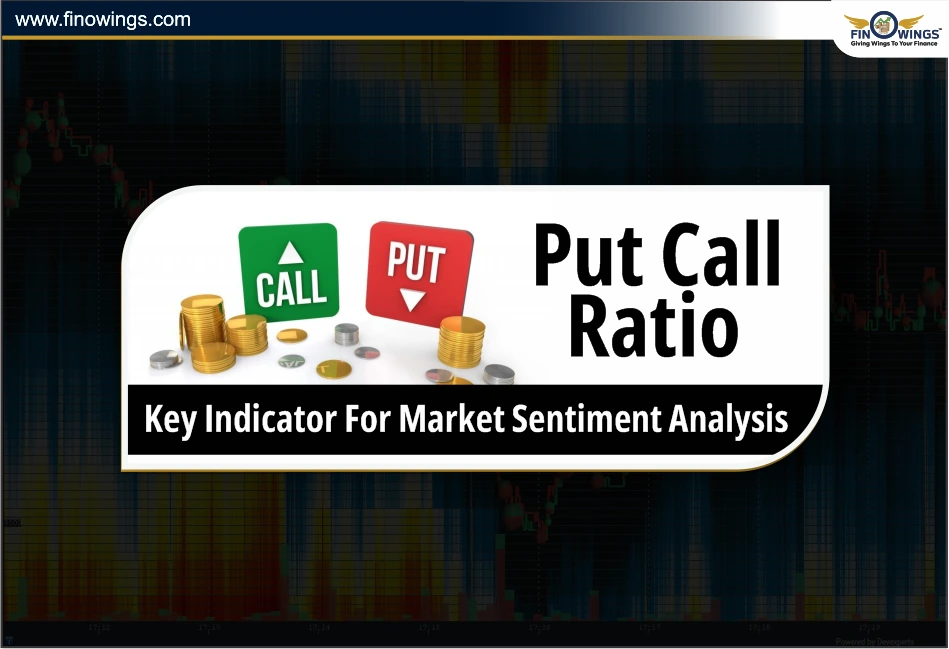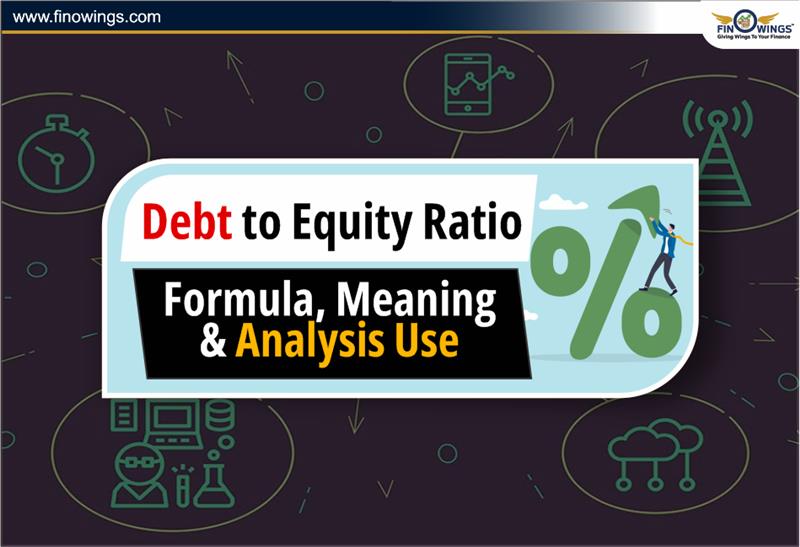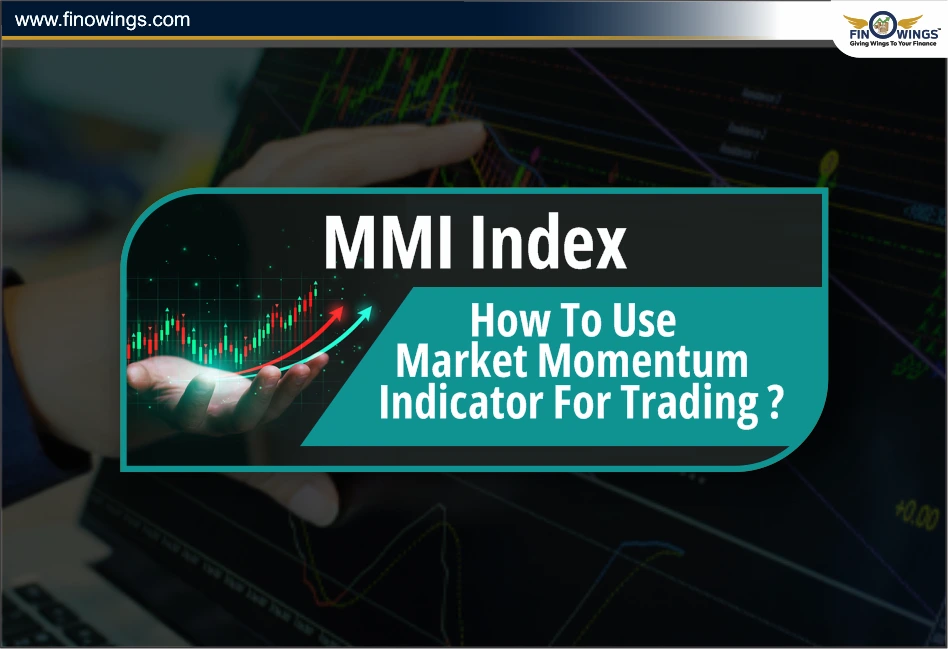Home >> Blog >> How to Master Trading Psychology: Definition, Types & Importance
How to Master Trading Psychology: Definition, Types & Importance

Table of Contents
Master The Skills Of Trading Psychology And Be Successful
Whenever it comes to trading or the stock market, our focus is more on external factors like the market, capital, company performance, analysis, charts, and data. In this, we completely ignore one of the critical aspects known as trading psychology, whereas this aspect plays a big role in deciding your future in the world of trading.
Even when it comes to the skills required to become a successful trader, we tend to focus mostly on market knowledge and awareness, the ability to read and understand analytical aspects, and decision-making. Psychology plays a very important role in decision-making. You must have often heard from market experts that one should never make emotion-driven decisions in trading.
Always remember that business can never be emotionally driven. As a trader, you need to proceed with logical reasoning. Being emotionally involved can make you take wrong decisions, which can be detrimental to the success of your business. Therefore, any trader needs to understand the trading psyche.
Also, understand why it is important to develop strong trading psychology and how to avoid Psychological Trading Mistakes. Today, through this blog, we will try to understand Trading Psychology Exercises.
What's Trading Psychology?
As we all know psychology is a study of behavior and mind. Trading psychology refers to the mindset of a trader in the market. Trading psychology determines the extent to which traders can make profits in the market, as well as provides an explanation as to why the trader has suffered huge losses.
Trading psychology helps explain how a trader manages to generate profits and handle losses. In other words, the emotional aspects of investing affect your every transaction and your ability to handle these emotions is part of your trading psychology.
It does not matter how experienced a trader you are or whether you have good knowledge and trading skills of the stock market. However, if you allow your emotions to overpower your decision-making, believe me, you will never be a good trader and you will mostly lose.
To be a successful trader, you must identify your emotional biases like fear, hope, greed, nervousness, and excitement and try to keep them under control.
There is also the fact that it is almost impossible to eliminate emotion in trading. Traders should use this information to their advantage by understanding how certain biases or sentiments affect traders' trading.
Some Important Points About Trading Psychology
- Greed and fear are two powerful emotions that can dominate any trader's thought process. On your path to becoming a successful trader, your goal should be to keep these emotions away and develop a winning mindset within yourself.
- Discipline goes a long way in controlling these emotions, creating strong trading psychology. Apart from making a good trading plan, you can read books by expert investors.
- Creating a trading plan can help you stick to your routine, build concentration, and avoid losses.
- When the price of an asset starts falling sharply while trading, the trader starts to get scared. They think that they have lost their money. This is especially the case with traders who have just started trading. Trading is not an easy task at all. It requires mental toughness to handle emotions like fear of losing money, greed, and making mistakes. You cannot trade without learning. Understanding the risks and managing them properly is also very important.
- In this case, traders sometimes have to make quick decisions. Your trading plan doesn't work all the time. Keeping emotions in mind becomes very important when making quick decisions.
- Believe me, greed is your biggest enemy in trading. Every trader should understand this. Of course, the main objective of trading is to make a profit, but it does not mean that, in the greed of that profit, you should do more damage on your own. It is very important to have the right mindset. Set a goal for yourself and work accordingly.
- The best way to gain control of your trading psychology is to never stop researching. As markets evolve with new technology, innovation, and opportunities every day, you may need to adjust your trading strategy all the time.
Does bias affect your trading?
Bias affects the market, even if it is the general market! It is clear from the definition of prejudice that it refers to a predetermined personal disposition in favor of something. As a result, they can hinder your transaction processing or decision-making ability in the market. In other words, your rational analysis is dominated by bias.
It is very important to be rational in the market. For example, an asset that made you a profit last time may not necessarily benefit you this time as well. Just like the last time where you had a loss, this time you don't need to have a loss in that asset. But the bias forces you to do so, and sometimes this bias damages your capital. Instead of going with your bias while trading, proceed with logical reasoning.
5 main types of bias
1. Gambler's fallacy
- Gambler's fallacy is where you give more importance to your assumptions. In this, they believe that because an asset continues to grow, it will continue to grow. While this does not happen at all. Every coin has two sides. Don't play the game of money by relying on one side.
- "Rakesh Jhunjhunwala once said, the market is not a commodity that can be kept stable, but it is a sea in which ups and downs keep coming." Often, people misunderstand the concept of randomness. Every time the ball goes in the air in a cricket match, it does not mean that there will be a catch. There is also a chance of every catch falling. The same principle applies in trading as well. For example, if you've lost five trades in a row, that doesn't necessarily mean you'll have a higher chance of winning on the sixth attempt.
2. Negativity bias
- It means that it makes you inclined to only look at the downside of the trade. Don't let your attention go to the right things. Traders affected by negative bias always expect negative results rather than positive ones. We are not saying that being cautious in trading is bad, it is important to be cautious.
- But too much negativity towards the market can be harmful to you. And when you have good trading opportunities, then because of this negativity, you will lose those opportunities too.
3. Confirmation bias
- It happens when you do a lot of research or give too much importance to news and analysis. It allows you to have pre-prepared ideas for that particular trade already in your mind. Sometimes, due to too much research, you may miss out on a good opportunity, as you are unable to refute the previous beliefs made about that trade.
- When you lose a trade, you should face reality and not say that the market is going in the wrong direction. Doing so can be a costly mistake for you.
4. Representative bias
- Most people suffer because of this prejudice. Representative bias means that you try to repeat previously successful trades. No one else needs to benefit a lot from this, so yours will also be there. In this, traders go by the name of the company and past experiences.
- That too without analyzing it because, in the past, it has made good profits for you or others. However, rather than the historical success of any trade, one should go to its current market analysis.
5. Anchoring bias
- In anchoring bias, a person starts thinking about exiting the money before investing it in trading. He focuses solely on the price at which he entered the market.
- Of course, that price may be completely irrelevant to the market, but it means a lot to the trader. Watching the market fall, he only thinks about his money.
How to avoid psychological trading to become a successful trader
Learn from your mistakes
Initially, a trader can trade according to his psychology, but a few hours in the stock market can prove his psychology wrong. If he wants to be a successful trader, he will learn from these mistakes and try to never repeat them. A successful trader is not successful just because he has made good profits.
He is successful because of his ability to earn rather than accept defeat. Let's assume one thing the game of trading is such if you are not going to get success all day. A successful trader takes lessons from his losses and uses them to his advantage. In the event of loss, he analyzes the trading activity to understand the mistakes and learn from them, and applies them in his future trades.
Try to avoid being overconfident
A successful trader is never overconfident about his trading knowledge; rather, he tries to learn something new every day. Believing in one's knowledge and ability is a good thing, but overconfidence can lead to wrong decisions.
Try to balance trading risk
Everyone knows how risky the stock market is. New traders take positions in the stock market even when there is no good opportunity due to their general psychology. Due to a lack of familiarity with the market and the game of stocks, they are unable to resist the temptations shown in the market and lose their hard-earned money.
Whereas a successful trader understands how to maximize profits. Maximum profit can be achieved only after protecting the capital. Also, a successful trader has good patience.
If you do not have patience, then you will not survive in the stock market for a short time. Patience is what teaches you when and how much to invest in the market. Also, patience teaches trading at the right time.
To reduce your risks in the market and to protect your money, you can trade using security measures like stop loss.
Some habits for effective trading or how to improve your trading psychology
A trader can develop these effective trading habits in place of his trading psychology:-
- First of all, develop a business plan and follow it. Of course, this will not give you a profit all the time, but it can certainly reduce your risk of loss to a great extent.
- Never take the shortcut route in your trading plan. This will not be beneficial for you in the long run.
- Do not be greedy for more profit, because for high profit, you also lose the money you get.
- New traders should pay special attention to the fact that they should invest money in only those things of which they have little knowledge. Also, invest as much money as you can afford to lose.
- You may fail in the beginning, even for a short period. But if you want to do well in trading, then do not be afraid of losses, but try to learn from those losses as much as you can.
- No matter how strong your opinion is or how much confidence you have in your analysis, always prepare yourself to exit the trade.
Conclusion
Knowledge of Trading Psychology For Beginners is important if you want to be a successful trader. However, it cannot be denied that nothing is guaranteed in the world of trading. After learning trading psychology, not every trade needs to bring you profit. But you can follow the habits and trading psychology of successful traders to increase your chances of high profits. It will benefit you over time. With this, you will be able to take any decision in the stock market without an emotional reaction and move towards becoming a successful trader.
Frequently Asked Questions
Trading psychology refers to the state of mind and emotions that help determine success and failure when trading securities.
In the market, you will find many books related to trading psychology, which is very useful even for a new trader.
- Trading in The Zone by Mark Douglas
- Trade Like a Monk by Harneet Singh Kharbanda
- Trading Psychology 2.0 by Brett N. Steenbarger
Before you start trading, keep in mind that the market is never static. In addition, your emotions can influence your decision, so keep your subconscious mind under control.
















